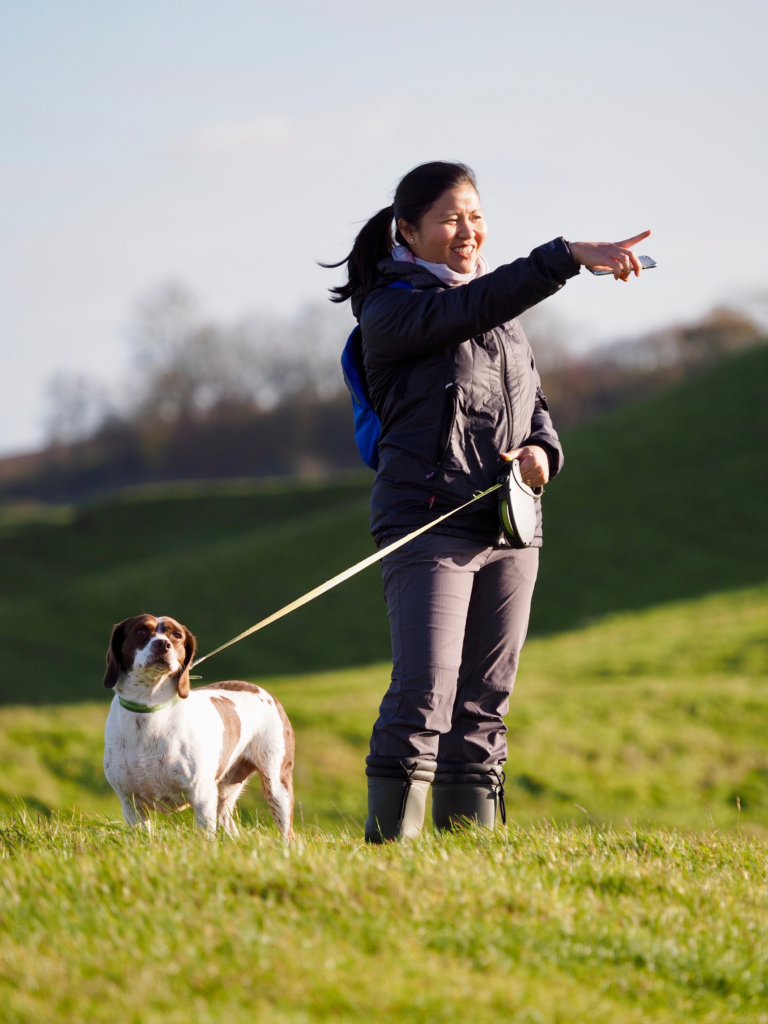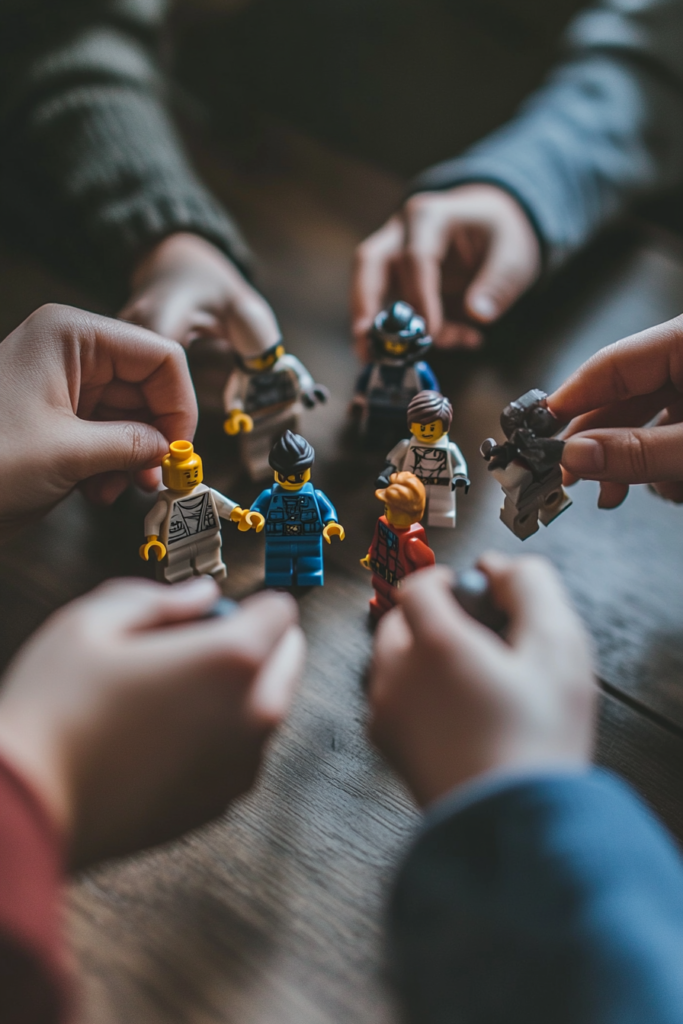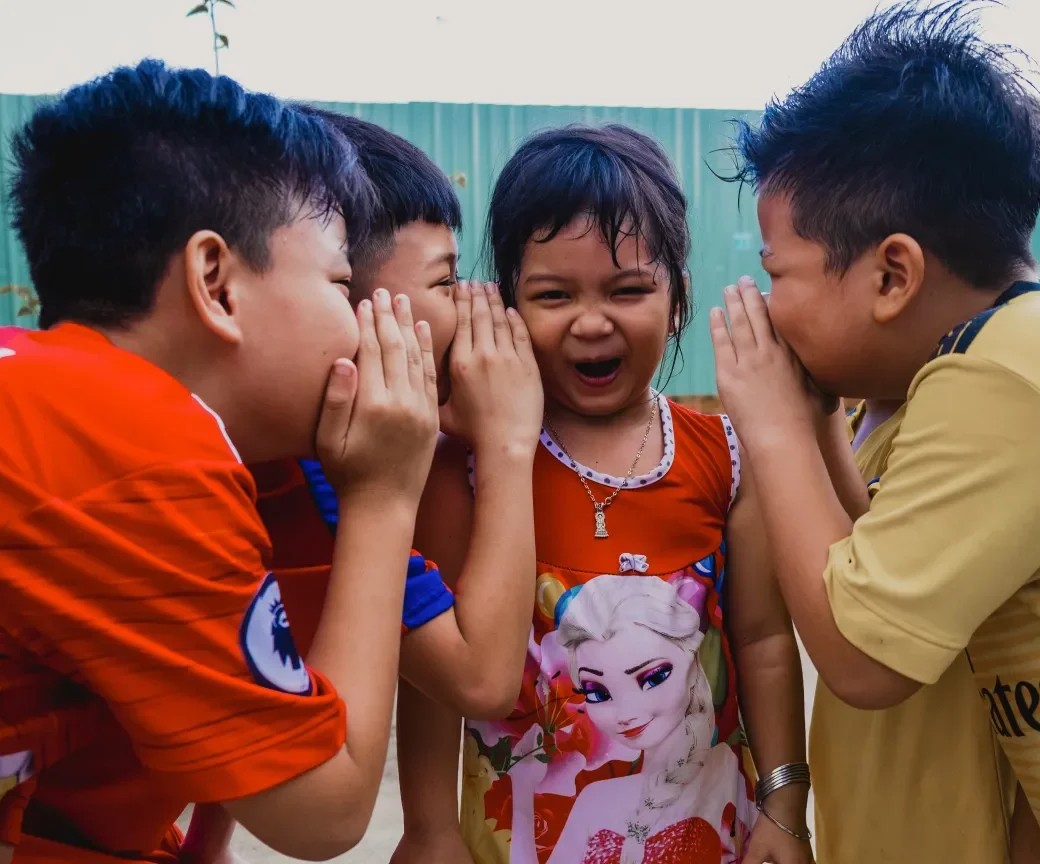About me
Let Me Introduce Myself
I hope this section helps you get to know me a little more and gives you an idea of who will be on this journey with you.
Multicultural roots & personal background
I’m Thai/Chinese. I partly grew up in Bangkok, Thailand between my Thai and Chinese households, and partly in the UK between Thai and British cultures. I moved to the UK in 1995, when I was 14. Since then, I’ve lived back in Thailand twice as an adult, once with my husband and once with our dog Bella. Honestly, I often felt more like an expat than a returnee, facing the reverse culture shock many repats talk about.
I never fully understood what Third-Culture Kid meaning was until I was 40. Discovering there’s a community of us living between worlds encouraged me to see identity and home differently. I didn’t need to choose one or fit neatly into a box. My in-between experience is valid and colourful. Today, I call the UK my “home,” Bangkok my “roots,” and Chiang Mai my “second home.” I have Thai, Chinese, and English names, and I’m known as all of them depending on context. I speak English and Thai (and three Chinese words!), though I feel most comfortable in English when it comes to work and expressing myself.
Living between cultures has shaped me in ways I didn’t understand until adulthood. Like many multicultural adults and Third-Culture Kids (TCKs), I adapted to fit in and belong. But beneath the surface I struggled with identity, self-worth, guilt, shame, and belonging, often overthinking, people-pleasing, and masking anxiety with being strong instead of showing vulnerability.
These experiences now give me both perspective and compassion for others navigating the “in-between”, which deeply informs my multicultural counselling approach. I know what it’s like to have multiple compasses guiding me through life. This blend of lived experience and professional training helps me meet clients with empathy and practical support.
Outside of work, I’m a huge lover of food. Nature is where I feel grounded, and joy often comes in small moments, like seeing Bella’s happy face when she runs or laughing at myself doing a silly dance.


Why I became a counsellor
My journey into counselling has been shaped by both personal and cultural experiences. As an Asian Third-Culture Kid in the UK who lived through Childhood Emotional Neglect (CEN), I struggled with both my own emotions and those of others, identity confusion, and the conflicts between ingrained childhood beliefs and the new perspectives I formed in my host country.
My awareness of mental health also came through my loved ones. Seeing people close to me struggle with anxiety, depression, and stress showed me how much unseen pressure and emotional strain people hold, often while appearing strong on the outside. This awareness deepened when I returned to Thailand as a repat. Living and working among both Thai and expat communities with my husband, I saw how cultural differences, culture shock, and reverse culture shock can quietly shape how we how we move through life. Some of us shrink to fit in, while others puff up to stay in control—losing a little piece of ourselves along the way.
I also learned that we can’t run from our past trauma. At some point, it resurfaces, often when we least expect it. I’m grateful to have gone through my own counselling, where I spent two years with my counsellor tending to the cracks I had ignored for far too long.
My mixed heritage, turbulent childhood, colourful life experiences, and the intergenerational trauma within my family led me to explore the path of healing and growth through counselling, and later to specialise in multicultural counselling. My wish is that no one has to sit alone with the belief that something is “wrong” with them, but instead can explore their struggles with compassion, curiosity, and hope.
My training & experience
My core training was at Maple Leaf Counselling & Training Centre, UK, an approved centre by the Counselling & Psychotherapy Central Awarding Body (CPCAB). The training was an integrative route, covering multiple approaches to therapy.
CPCAB Level 2 Certificate in Counselling Skills
CPCAB Level 3 Certificate in Counselling Studies
CPCAB Level 4 Diploma in Therapeutic Counselling
CPCAB Level 5 Diploma in Psychotherapeutic Counselling
Counselling Tutor – Certificate in Online and Telephone Counselling
Creative Counsellors – Working Creatively Outdoors, Ecotherapy, and Walk & Talk
Sussex Rainbow Counselling – Email Counselling for Counsellors
- Breathing for Calm – Breathwork for Counsellors & Psychotherapists
Continuing professional development
The focused areas have been: Trauma & Shame, Intergenerational Trauma, Cross-Cultural Experiences, Childhood Emotional Neglect (CEN), Grief, Compassion & Mindfulness, LGBTQ+, Focusing (inner felt sense), Inner Child, and Neurodivergent (specifically ADHD).
Counselling experience
I began counselling in early 2020 with a charity in Warwickshire, before setting up my private practice in 2023. My clients come from a diverse range of cultures, races, and backgrounds, both in the UK and internationally. Many have experienced trauma, childhood emotional neglect, or difficult relational experiences. I also work as an expat therapist, offering expat counselling and multicultural support for those living abroad, returning as repats, or navigating mixed heritage identities.


My approach to therapy through multicultural counselling lens
I believe we are all shaped by many ingredients, including our genetics, cultures, families, identities, and life experiences. These layers can influence how we see ourselves and relate to those around us. For multicultural and international adults, those influences can sometimes clash, leading to self-doubt and unhelpful coping mechanisms. Multicultural counselling offers a space to explore those layers with curiosity, compassion, and respect.
In my work, all parts of you are welcome: the independent achiever, the people-pleaser, the anxious overthinker, or the one who feels too different for home and too foreign here. Therapy is where we can be curious and make sense of those different parts without judgment. It’s a safe space for you to share, reflect, experiment, and discover what feels right for you. Conversations about early life experiences, cultural differences, mixed heritage, identity, and race can be explored and processed without blame or shame.
I see counselling as a collaborative process, where we work together to notice your needs, gently unlearn beliefs and patterns that once kept you safe, and find new ways forward. Often, it’s also about your pain being heard, understood, and validated, as much as your strengths being recognised and celebrated.
Multicultural counselling recognises that our cultural background plays a big role in how we see ourselves and the world. It’s about understanding you in the whole context of your life, not just as an individual in isolation.
As a trained integrative and trauma-informed counsellor, I draw from multiple approaches and adapt them to your needs. I understand how negative experiences and trauma can affect our nervous system, impacting both body and mind. This can result in overwhelming thoughts, intense emotions, or physical reactions that feel out of proportion to the situation. You’re not broken; you may simply have been stuck in survival mode.
My approach is relational, culturally sensitive, trauma-informed, and practical. Sessions are usually relaxed and conversational rather than clinical. If it feels helpful, I may include creative and somatic (body-based) practices to support the work, because there may be times when talking alone is not enough. The foundation of my work is to help you gain self-clarity and self-trust, befriend your emotions, and grow empathy and compassion for all parts of you. From that place, meaningful change can happen, for yourself and your relationships.
What people are saying
To protect confidentiality, the feedback below shares clients’ and peers’ experiences of working with me, without using names or initials.
What my clients say
“I’m understanding myself better than ever. I’m colourful now, embracing my ups and downs.”
“For the first time in my life, I feel like I’m able and willing to take care of myself. I feel so much calmer and at peace with everything, even doing things I used to enjoy again!”
“I’m more grounded, certain, and have more faith in my ability to cope now. I like myself!”
“Star provided me with tools to hold on to for life.”
“I always left the sessions feeling lighter and more comfortable in my own skin.”
“Working with you has completely changed my relationship with myself and those around me.”
“I’m different now, I’ve been denying my feelings for a long time. I don’t want to feel numb anymore.”
Words from my peers
5 key words from my peers: Authentic, honest, funny, warm, good listener.
